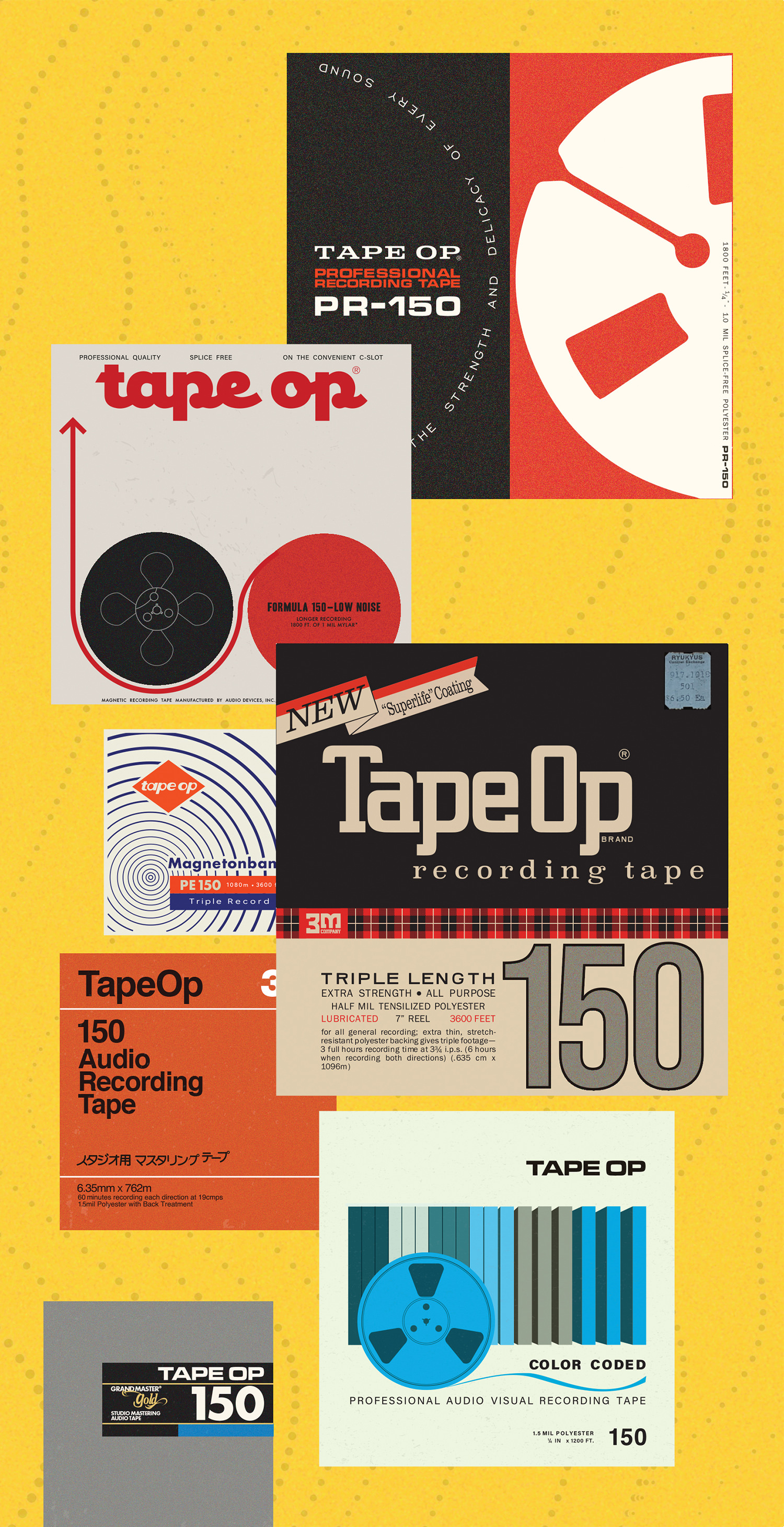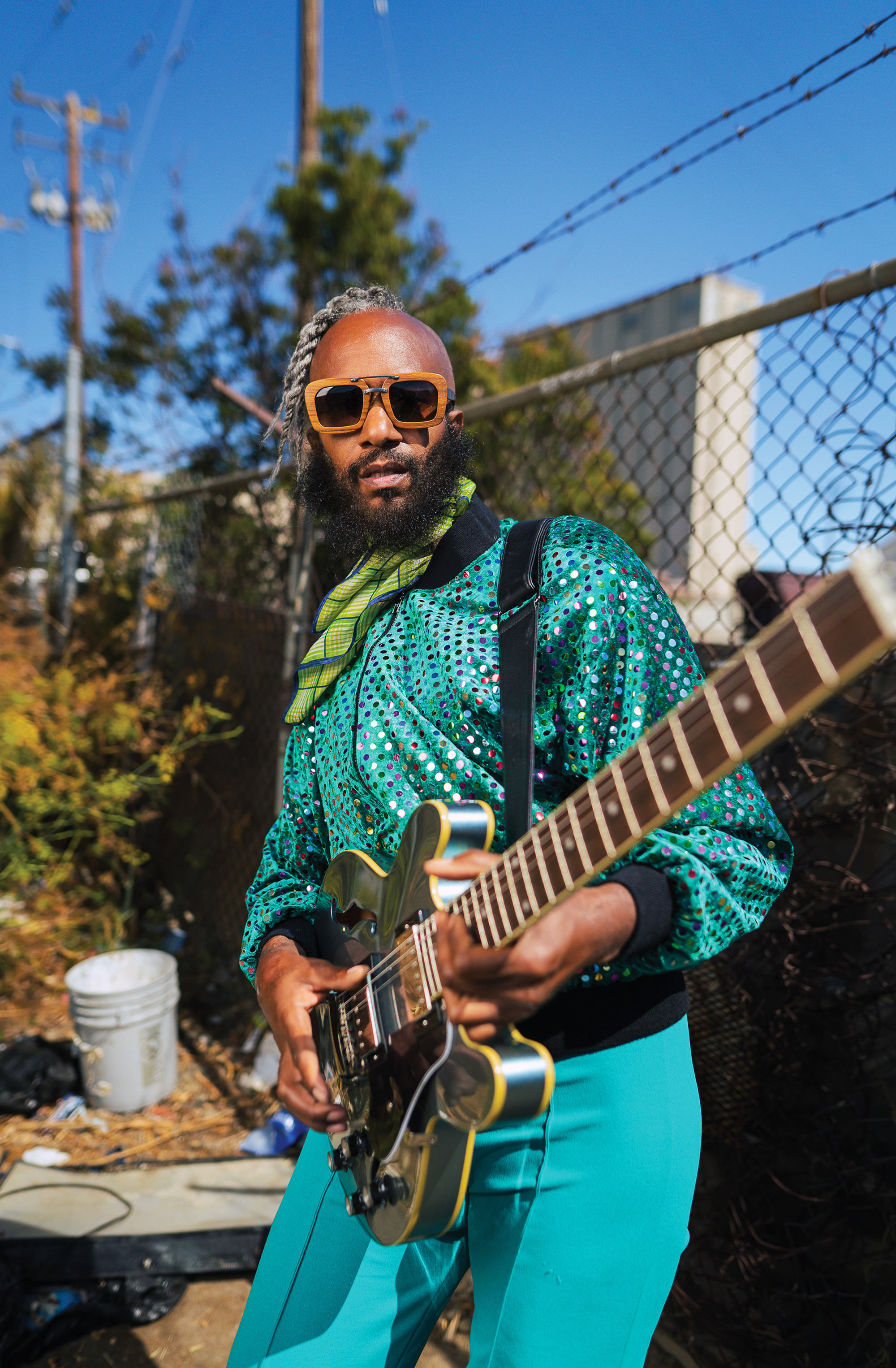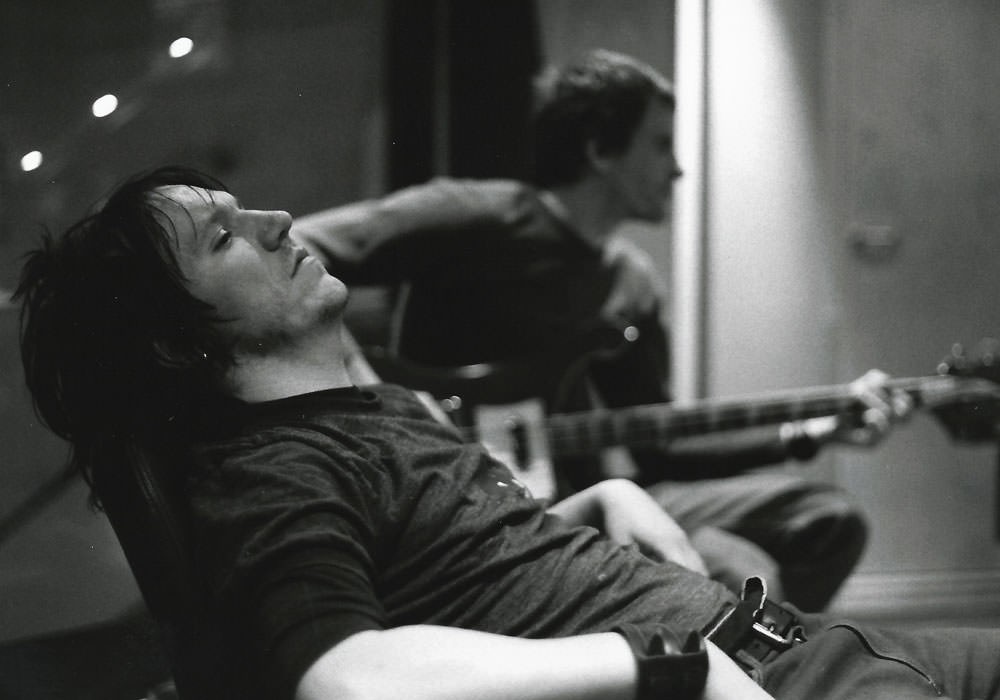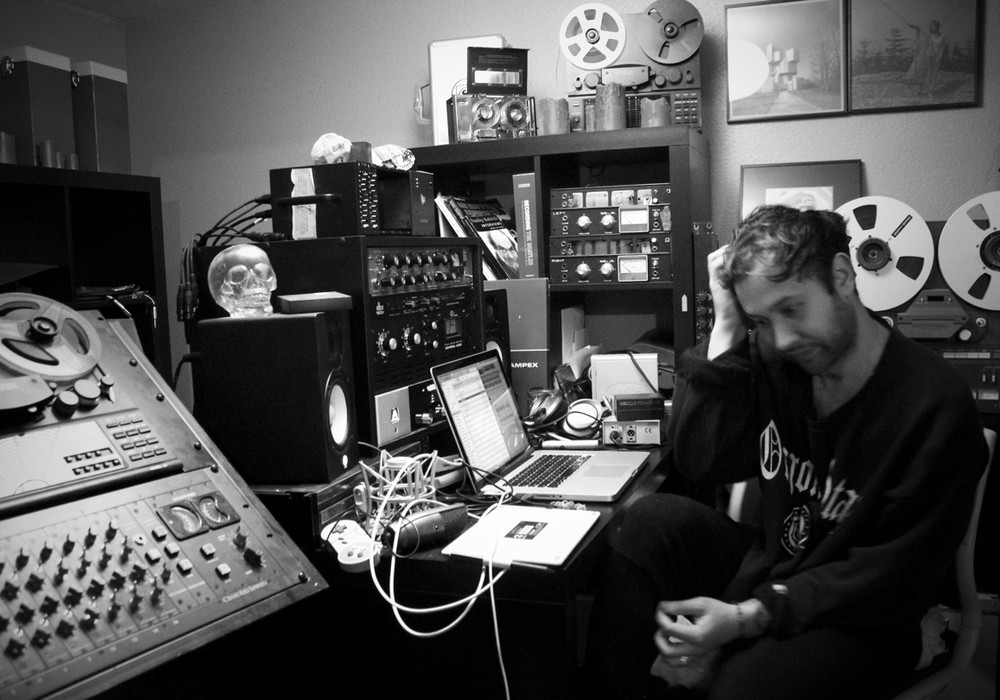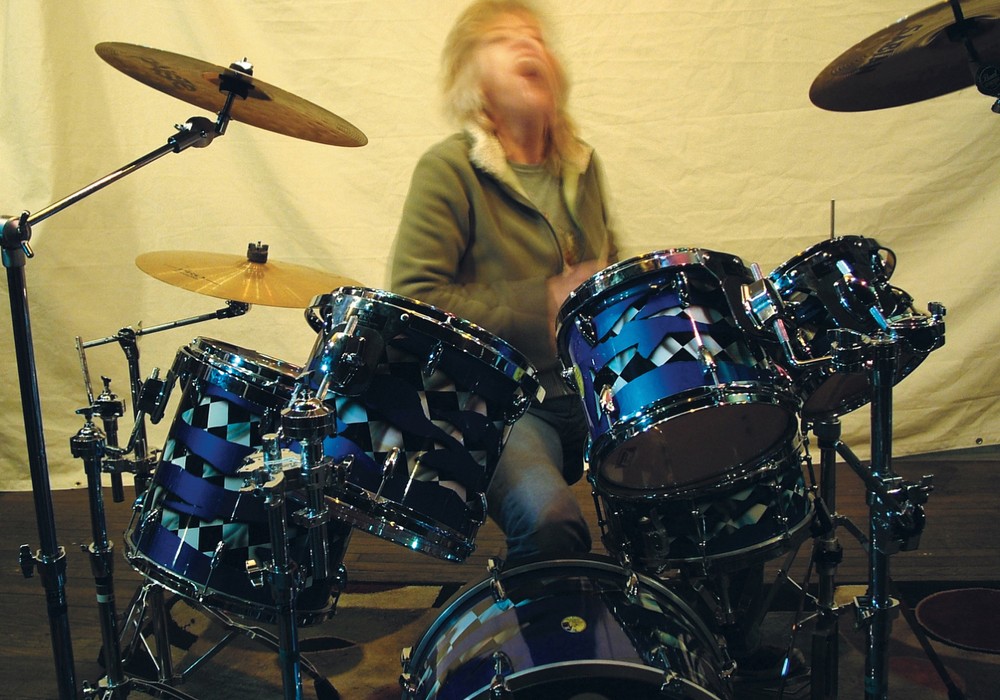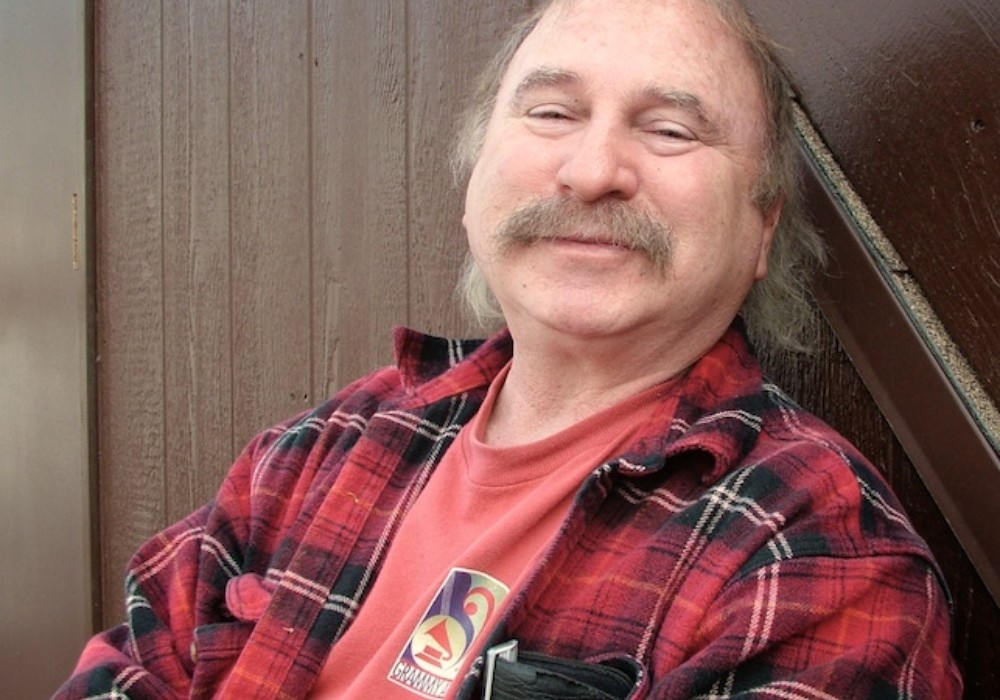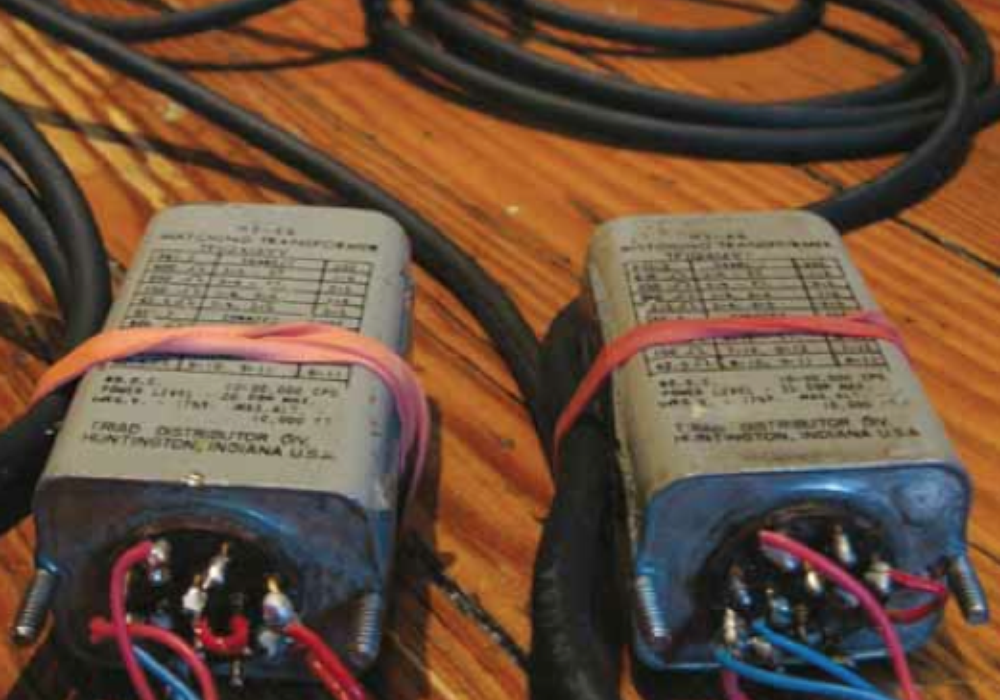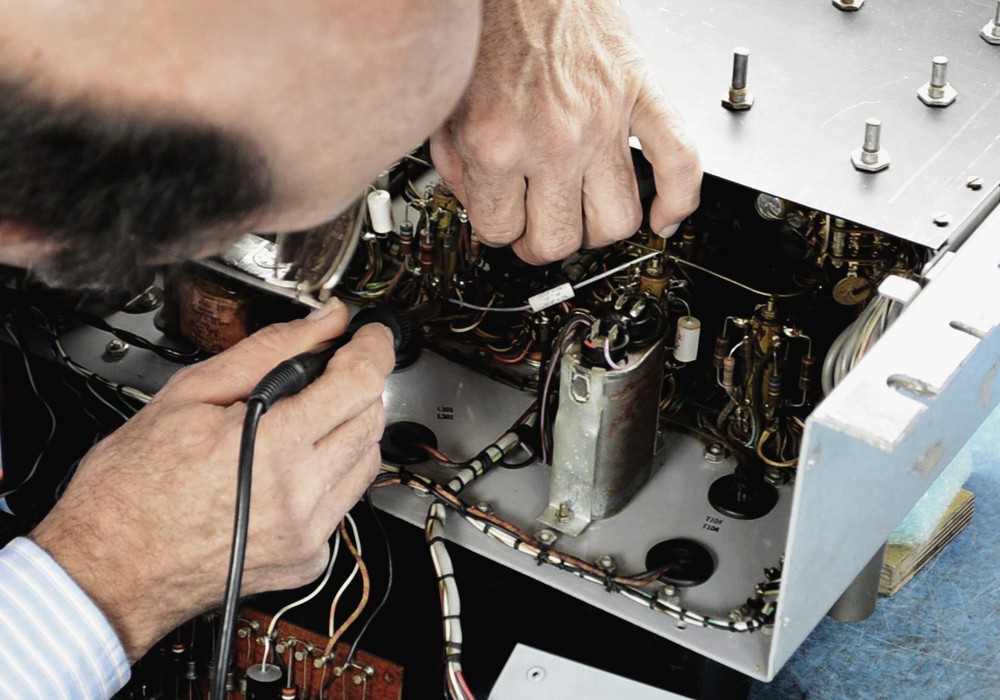Fantastic Negrito’s new album, White Jesus Black Problems, is based on the true story of Negrito’s seventh generation white Scottish grandmother (Grandma Gallamore), an indentured servant living in a common law marriage with his seventh generation African American enslaved grandfather (Grandfather Courage); in open defiance of the racist, separatist, laws of 1750s colonial Virginia.”
In this country, we worship billionaires while parts of some cities look like what we’d call the third world. I’m trying to convey what I see when I walk down the street here in Oakland.”
Born Xavier Amin Dphrepaulezz in 1968, he released a big budget Interscope debut (The X Factor) as Xavier in 1996. Then, after a near death accident and quitting music for seven years, he was reborn as Fantastic Negrito. He has released five albums under the moniker since 2014, and the last three, including 2021’s Have You Lost Your Mind Yet?, have won consecutive Grammys for Best Contemporary Blues album.
How was your experience working with a major label, Interscope, in the mid-1990s?
They wanted me to work with Teddy Riley [Michael Jackson, Bobby Brown, Heavy D] and Nile Rodgers – who I probably should’ve worked with. [laughs] But I was stubborn, furiously independent, and probably an egomaniac; insecure and terrified. Check all of the boxes. Give a 25-year-old dude a million dollars – I was able to change the direction of my life, and my family’s, by just signing my name. I pulled myself out of poverty and never returned. I was naïve though. I thought I’d go make a record, put it out, and “everybody loves you.” [laughs] For me, it turned out the opposite. But we have these negative experiences and that is the way we learn. I don’t know if we learn much when everything is going great. We learn the most valuable lessons when we are challenged. I bought equipment with my record advance instead of getting a fancy car. I’m the eighth of fourteen kids, so there were a lot of people to help. I still have, and use, some of the gear I bought at that time, including a Neve API Lunchbox, a Urei 1176LN “blackface” compressor, and some Groove Tubes mics. I’m staring at one of those mics right now.
You’ve been doing this for decades. What were some early experiences in the studio?
I’ve produced all of my own albums. I’m an old man over here. [laughs] I come from the analog world in the ‘80s. I went to L.A. from Oakland in 1990, and didn’t know what I was doing. I started knocking on doors. Some guys in the neighborhood owned a studio. I came to find out later that they were the gangsters; the drug dealers. I didn’t find out until I’d been working there for a while. I told them, “I just want to learn how to work the tape machines and the boards.” I kept working late, and they said, “Hey, we’re closing down for the night.” I asked them if I could stay. I started staying up all night and sleeping on the floor. I was trying to learn the mixing console and the whole amazing world of audio. They had a bunch of old gear and some old Soundcraft board. I remember meeting Robin Thicke there when he was 14 years old, Jamie Foxx before he was famous, and will.i.am, who back then was called Will 1X.
That’s Los Angeles – movie stars and gangsters.
But I started learning through trial and error. I fell in love with tape distortion. They said, “You can’t do that.” But I said, “No, I like that sound.” [laughter] That love of distortion has remained a constant in everything I’ve ever done. A few weeks later, I saw the same guys on the news in L.A. Someone had found a headless body in their house. I got out of there quick.
Where do you stand on analog versus digital gear?
I use whatever is available. I’ve never been a hardliner. I believe in content. Content is king. What matters is what you are recording. What matters is what you are saying. My first two Fantastic Negrito albums were recorded with an Apogee Duet interface – two inputs and a $200 microphone. It was Pro Tools 9, with a laptop that was more than eight years old. I was afraid to update the Pro Tools, that I would mess up my Pro Tools mojo. The most important part of recording is the side you can’t touch – the intangible. The visceral, spiritual side of recording is why we love great recordings. It’s not because of what they were recorded on. When I won NPR’s Tiny Desk [Contest] in 2015, I used an [Apple] iPhone and iPad. That’s not what people were paying attention to. I love gear, but first and foremost you need artistry.
I find that many posers talk about equipment when they lack ideas artistically.
I think you’re 100...
